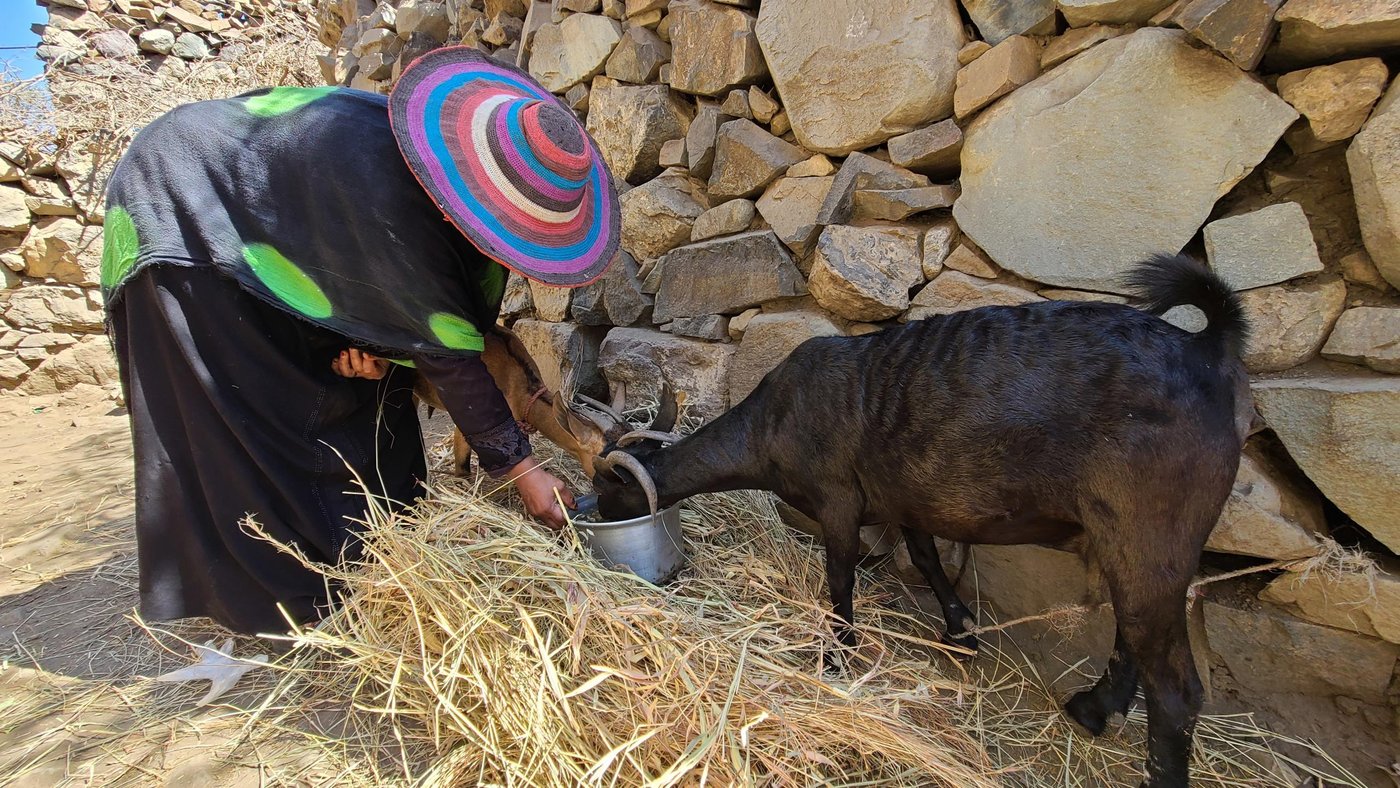Tradisjonen i Jemen er at en skilt kvinne drar tilbake for å bo hos faren sin, som betaler for henne og barna. Men dette var ikke mulig for Khadijah.
– Faren min fikk diabetes for mer enn fem år siden. Han kunne ikke arbeide mer på grunn av sykdommen, så jeg måtte finne meg en jobb så jeg kunne forsørge døtrene mine, og hjelpe dem å fullføre studiene sine, sier hun.
Khadijah fikk småjobber på gårder rundt omkring. Hun hjalp også kvinner i landsbyen med å samle ved og brensel fra fjellene. Hun tjente som regel mellom 500 og 1.000 jemenittiske rial (omtrent ti kroner) om dagen. Ettersom årene gikk, begynte det harde og fysiske arbeidet å tære på helsen hennes.
– Jeg har et problem med ryggmargen min, forteller hun. – Jeg kan ikke arbeide så hardt lenger. Jeg måtte slutte å jobbe, og måtte få hjelp av sjenerøse personer og veldedige organisasjoner for å overleve.
Et vanskelig liv
Khadijah pleide å bo i huset til faren, sammen med brødrene sine og deres familier. For et år siden flyttet hun til et lite ettroms hus, slik at hun og døtrene hennes kunne leve sammen som en familie.

Før krigen kunne folk hjelpe hverandre fordi matprisene var lave, og mennene hadde jobber. Men nå er ting verre.
– Livet er vanskelig, sier Khadijah. – Noen ganger har vi nok mat, men som regel spiser vi bare ett måltid om dagen. Ingen vet hvor mye vi lider.
– Jeg sliter med å få skaffet døtrene mine det de trenger, særlig klær og skolemateriell.
Fra ett måltid om dagen til tre
Med støtte fra den britiske regjeringen har Flyktninghjelpen begynt å hjelpe mennesker i landsbyen til Khadijah med pengestøtte.
Khadijah fikk kjøpt mat for minst to måneder med den første utbetalingen, og familien kunne også endelig spise tre måltider om dagen, i stedet for ett.
– Flyktninghjelpen hjalp oss med å skaffe basisvarer og ting vi trengte, og gjorde at vi fikk det bedre. Jeg ser at familiene i landsbyen er glade nå, sier hun.
– Hvis noen i landsbyen er syke, besøker vi dem, og tar med oss juice og frukt.
Kjøpte geiter
Khadijah mener det er bedre å motta pengestøtte enn matvarer, siden det gjør at hun kan bruke pengene på det hun trenger.
Hun håper å få forsørget seg og barna sine selv når støtten en dag tar slutt. Derfor har hun startet å holde geiter.
– Jeg brukte noen av pengene jeg fikk av Flyktninghjelpen til å kjøpe to geiter. Å ha geiter kan hjelpe meg å forsørge familien min i fremtiden, sier hun.

– Jeg har ikke opplevd så mange lykkelige stunder i livet. Jeg har lidd mye. Men jeg jobber hardt for å sørge for at døtrene mine skal få et bedre liv, sier Khadijah.
Khadijah er ikke alene. Krigen i Jemen har gjort stor skade. Anslagsvis 80 prosent av Jemens befolkning, 24 millioner mennesker, trenger humanitær assistanse – inkludert 14,3 millioner mennesker som har behov for akutt nødhjelp.
*Navnet har blitt endret for å beskytte identiteten.


